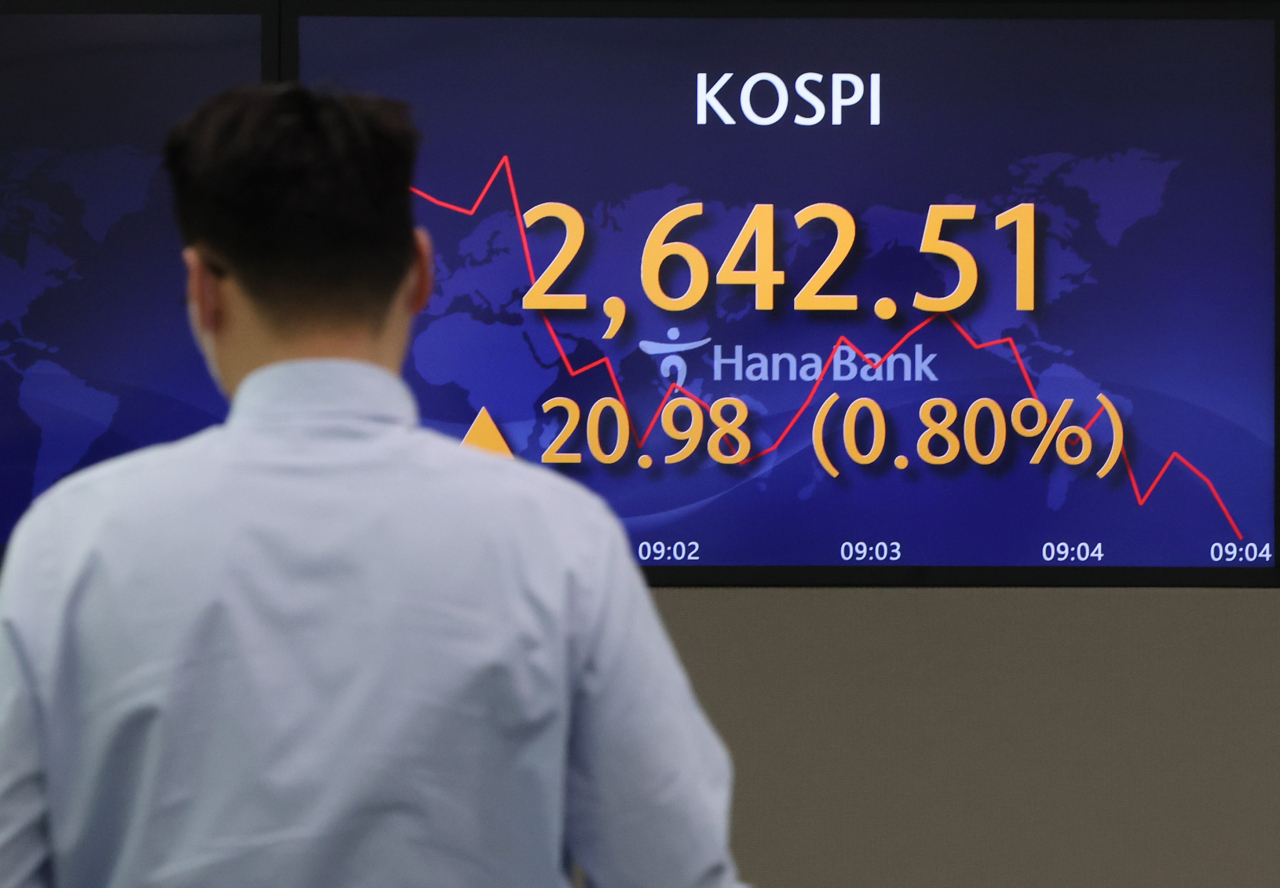 |
An electronic board showing the Korea Composite Stock Price Index (Kospi) at a dealing room of the Hana Bank headquarters in Seoul on Tuesday. (Yonhap) |
The South Korean stock market fell for the sixth consecutive day Tuesday to hit a 17-month low, as investors fretted about high inflation and a global economic slowdown amid the ongoing crisis in Ukraine and China's lockdown of major cities over COVID-19. The local currency hit its lowest point against the US dollar in more than two years.
The Korea Composite Stock Price Index (KOSPI) lost 14.25 points, or 0.55 percent, to close at 2,596.56, extending losses to the sixth session in a row. It is the first time since November 30 that the index fell below 2,600.
Trading volume was moderate at 826.79 million shares worth 10.69 trillion won ($8.38 billion), with decliners outnumbering gainers 614 to 262.
The index opened sharply lower, tracking overnight losses on Wall Street, but some of the early losses were pared on solid retail buying and the advance in US stock futures.
Foreign investors sold a net 317.32 billion won worth of shares, while retail investors and institutions bought a net 285.66 billion won and 6.6 billion won worth of shares, respectively.
"There have been fears that the US rate hikes to curb inflation would hamper global economic growth," Cape Investment & Securities analyst Na Jeong-hwan said.
Last week, the Fed raised its benchmark interest rate by a half-percentage point and indicated more 50-basis point rate hikes to curb surging inflation.
"Weak China export data and the prolonged conflicts over Ukraine have also increased market volatility," Na added.
In April, China's export growth weakened by the most in about two years due mainly to the country's strict virus curbs. Shanghai has remained locked down since late March, and Beijing has tightened travel and business restrictions over the spread of COVID-19.
In Seoul, most large-cap shares traded lower, with bio and insurance hit hard.
Top-cap Samsung Electronics fell 0.61 percent to 65,700 won, and major battery maker LG Energy Solution shed 0.13 percent to 393,500 won.
Pharmaceutical giant Celltrion sank 1.82 percent to 162,000 won, and Samsung Biologics remained unchanged at 798,000 won.
Samsung Life lost 0.47 percent to 63,500 won and Samsung Fire & Marine Insurance tumbled 1.72 percent to 199,500 won.
Banks and financials also ended lower, with Kakao Bank shedding 2.08 percent to 40,050 won and KB Financial falling 1.53 percent to 58,000 won.
But major chipmaker SK hynix rose 2.33 percent to 110,000 won on bargain hunting, and major carmaker Kia jumped 1.82 percent to 84,100 won.
The local currency ended at 1,276.4 won against the US dollar, down 2.4 won from the previous session's close. It marked the lowest close since March 19, 2020, when the won depreciated to 1,285.70 won. (Yonhap)







